If you’re trying to grow your business, understanding the characteristics of a strong team isn’t optional. You can’t scale with weak links, unclear roles, or misaligned leadership. Strong teams are the engine behind every high-performing company, and they’re not built by accident. They’re created through clarity, intentionality, and often, expert coaching.
In this blog, we’ll break down the top 10 characteristics of a strong team that actually scale, how to assess your team, and what to do if you’re falling short.
Overview: What Makes a Strong Team That Can Scale?
These are the 10 key characteristics of a strong team:
- Shared Vision – Everyone knows the goal and buys in.
- Clear Roles – No confusion about who owns what.
- Trust – Without it, nothing works. With it, everything moves faster.
- Accountability – Strong teams hold each other to high standards.
- Communication – Clear, fast, honest. No drama.
- Resilience – They bounce back from setbacks fast.
- Results-Oriented – Action > intention.
- Continuous Improvement – They evolve or die.
- Diversity of Strengths – The right mix beats the best individuals.
- Leadership Alignment – No mixed signals from the top.
Let’s explore each.
1. Shared Vision: Everyone Rowing the Same Way
Listing the characteristics of a strong team starts with a shared vision. It’s not enough for leadership to know the mission—every team member must understand how their work contributes to the bigger picture. Teams that scale are aligned on the “why” behind the work. This alignment drives motivation, prioritization, and ownership.
When your team is aligned on a compelling vision, decision-making becomes easier, and conflict becomes productive instead of destructive. Team members feel empowered to take initiative because they know how their actions support long-term goals. Vision isn’t just a poster on the wall—it’s the pulse of execution.
2. Clear Roles: Clarity Over Chaos
One of the top characteristics of a strong team is role clarity. In high-performing teams, everyone knows exactly what they own—and what they don’t. No redundancy. No dropped balls. This clarity reduces friction and accelerates collaboration, especially during rapid growth.
When roles are clearly defined, team members stay in their lanes but also understand how their work connects to others. This prevents duplication, reduces miscommunication, and ensures efficiency. Clear roles eliminate the blame game and create a culture of accountability and competence.
3. Trust: The Ultimate Accelerator
Trust is the bedrock of any team. Without it, collaboration becomes cautious and communication becomes guarded. With it, feedback is honest, conflict is productive, and speed goes up. Building trust requires consistency, transparency, and follow-through. It’s also one of the top priorities in effective team performance coaching.
Trust is built in the micro-moments: following through on commitments, owning mistakes, and giving honest feedback without fear. It creates psychological safety, where team members feel safe to speak up, take risks, and innovate. Without trust, even the most talented teams will stall.
4. Accountability: Everyone Owns the Outcome
Strong teams don’t need micromanagement—they need accountability. When team members hold themselves and each other responsible for results, execution skyrockets. Regular check-ins, visible metrics, and peer accountability systems are essential. This is a trait common in every high-performing team.
Accountability isn’t about blame—it’s about ownership. Great teams create a culture where everyone commits to high standards and follows through. Public scoreboards, regular review cycles, and radical candor help keep accountability strong. The result is consistency, not chaos.
5. Communication: No Drama, Just Data
Open, fast, and clear communication is a non-negotiable. The best teams don’t waste time on gossip, assumptions, or drama. They clarify expectations, give feedback in real time, and use systems that support rapid alignment. In team collaboration, communication isn’t just a soft skill—it’s a multiplier.
Strong teams invest in communication systems and rituals—daily standups, project management tools, and one-on-ones that uncover roadblocks early. They communicate with purpose, not just volume. Whether remote or in person, clarity is the currency of execution.
6. Resilience: Strong Teams Take Hits and Keep Going
Resilience is the ability to adapt, recover, and keep pushing. Teams with resilience don’t crack under pressure—they grow stronger. Whether it’s market shifts, internal conflict, or a failed product launch, strong teams bounce back. Coaching can help foster this mindset by reinforcing grit and adaptability as cultural values.
Resilient teams use setbacks as fuel. They reflect, reframe, and respond instead of react. They understand that challenges are part of growth and build the muscle to navigate uncertainty. That adaptability is what keeps momentum alive in a scaling environment.
7. Results-Oriented: Done > Perfect
A focus on execution is one of the defining characteristics of a strong team. Great teams don’t just talk about ideas—they ship. They understand that done is better than perfect and move fast. KPIs and dashboards help keep this focus front and center.
Being results-oriented means aligning effort with impact. High-performing teams measure what matters, track progress daily, and course-correct without drama. They know that velocity beats vanity—and they prioritize forward motion over perfectionism.
8. Continuous Improvement: Always Sharpening the Blade
Strong teams don’t settle. They constantly evaluate what’s working and what isn’t. Whether it’s through retrospectives, training, or feedback loops, they stay hungry. This continuous improvement mindset is essential for long-term business growth.
These teams operate on the assumption that they can always get better. They seek out feedback, benchmark performance, and build a learning culture. Continuous improvement fuels innovation and keeps complacency at bay. In scaling companies, evolution must be constant.
9. Diversity of Strengths: Build a Complete Skill Set
No team scales on uniformity. You need strategic thinkers, detail-doers, communicators, and executors. Teams that scale have complementary strengths and respect each other’s lanes. Tools like StrengthsFinder or Kolbe help identify gaps and optimize contributions.
Strong teams are built on the belief that everyone brings unique value to the table. By leveraging different perspectives and skill sets, they solve problems faster and innovate more effectively. Diversity of thought leads to stronger outcomes and prevents blind spots from becoming bottlenecks.
10. Leadership Alignment: Top-Down Unity
The fastest way to break a team is through misaligned leadership. If leaders send mixed messages, the team fractures. When leadership is aligned—on values, vision, and priorities—the team follows. Leadership coaching is often the fix when alignment breaks down.
Aligned leadership means consistency in behavior, messaging, and decision-making. When executives speak with one voice, the team has confidence in the direction. Misalignment creates confusion; alignment builds momentum. It’s the foundation for trust, clarity, and cohesion.
The Role of Coaching in Building Scalable Teams
Here’s the truth: most teams can’t fix themselves from the inside. You’re too close to the problem. At Champion PSI, we coach executive teams to identify blind spots, establish systems, and develop leaders who know how to build and maintain strong teams.
Whether your team is battling poor communication, lack of trust, or scaling pains, professional coaching helps diagnose and solve the real problem—not just the symptoms. That’s how you move from stuck to scalable.
If you’re ready to invest in your team performance, we offer a free 30-minute strategy session to explore whether coaching is the right next step.
FAQ: Characteristics of a Strong Team
Q: What are the top 3 characteristics of a strong team?
A: Trust, clear roles, and a shared vision are foundational for any high-performing team.
Q: How do strong teams deal with conflict?
A: They face it directly, communicate with clarity, and focus on the solution—not blame.
Q: Can strong teams work remotely?
A: Absolutely. With the right systems for communication, accountability, and trust, remote teams can scale just as effectively.
Q: How do I know if my team is strong?
A: Start by evaluating these 10 characteristics. You can also bring in a coach to assess team health and performance.
Q: What is the difference between a team that grows and one that scales?
A: A growing team adds people. A scaling team increases impact without increasing complexity.
Characteristics of a Strong Team: Conclusion
Every business wants to grow. But not every business has the team structure to handle that growth. By understanding and investing in the characteristics of a strong team, you’re building a foundation that can scale sustainably and strategically.
Need help building that kind of team? Champion PSI specializes in executive and team coaching that accelerates growth.










